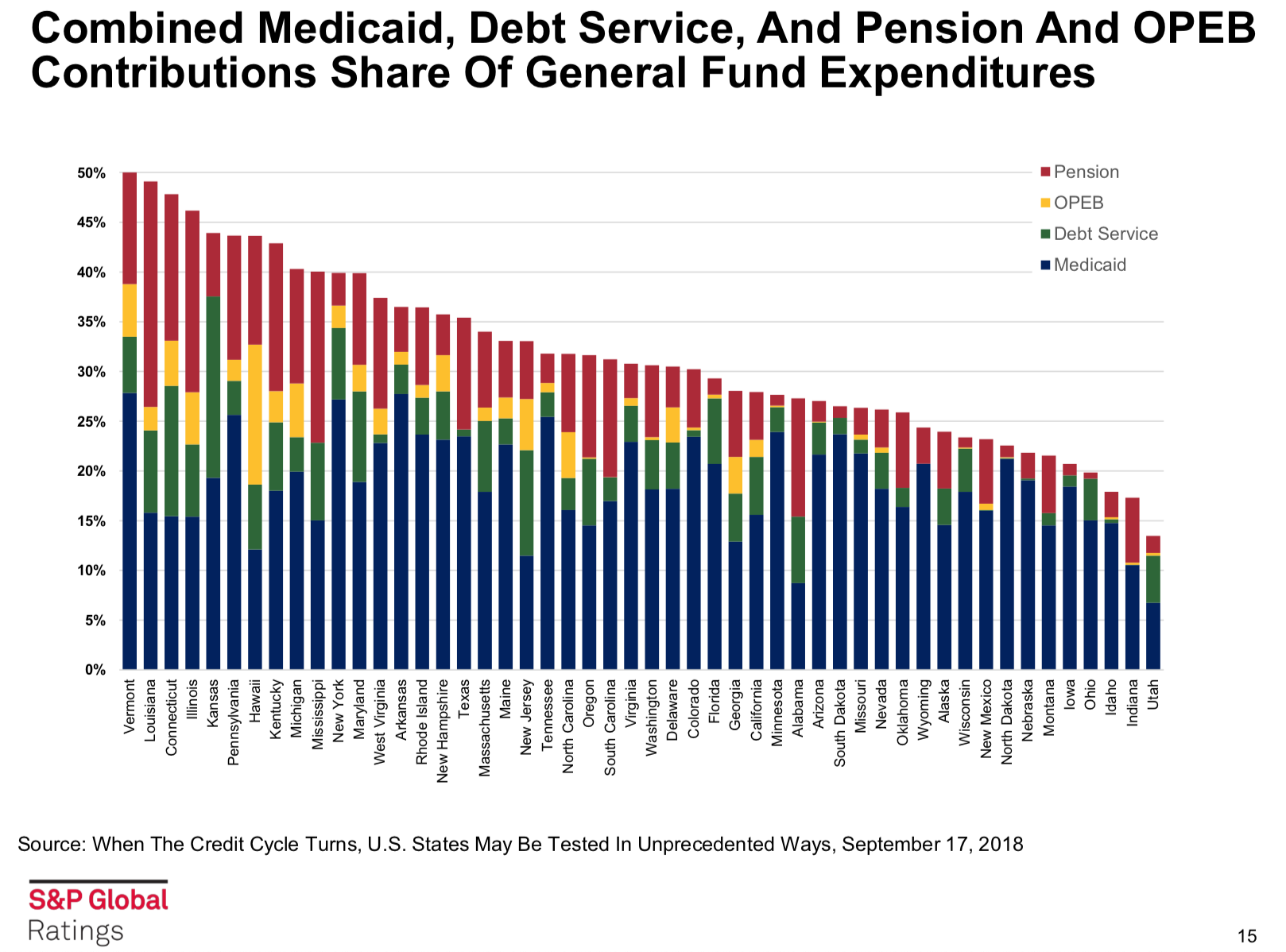Chair: Mark Crow, President, Tenth Crow Creative
MEMBERS
Sara Byers, President
Leonardo’s Pizza
Paul Cillo, President and Executive Director
Public Assets Institute
David Coates, Managing Partner
KPMG LLP (Retired)
Christopher Loso, Vice President
Loso’s Professional Janitorial Services, Inc.
Jeffrey McMahan, President and Managing Partner
Dinse, Knapp & McAndrew, P.C.
Robert Morgan, CEO
NorthCountry Federal Credit Union
John Pelletier, Executive Director
The Center for Financial Literacy at Champlain College
Rob Roper, President
Ethan Allen Institute
RESOURCES
Policy Options for Vermont State Employees and Teachers Pension and Health Care Retirement Systems (2020 Policy Paper – PDF)
Defining the Issue
 View Original Introduction – 2017 (pdf)
View Original Introduction – 2017 (pdf)
View Updated Presentation – 2019 (pdf)
![]() View Vermont Taxpayers’ Obligation – 2017 (pdf)
View Vermont Taxpayers’ Obligation – 2017 (pdf)
Events
Promises Made Promises Kept Conference – Presentations and full RETN taping of event (10.10.17)
Opinion Editorials
Mark Crow: “The Time is Now for Meaningful Pension Reform” (3.22.21)
David Coates: “Finally, Positive Action on State Retirement Systems” (1.25.21)
David Coates: “State Retirement Plans Need a Robust Stress Test…Now!” (3.11.20)
Mark Crow: “A Major Issue is Lurking” (2.27.20)
David Coates: “Guess What? Vermont Has a Negative Net Worth” (2.26.19)
David Coates: “More Bad Pension News for Vermonters” (2.8.18)
Mark Crow: “Responsible Solutions for Irresponsible Debt” (4.24.18)
John Pelletier: “Did You Know That You are an Insurance Company?” (5.21.18)
John Pelletier: “Is Vermont Exporting Maple Syrup and Wealthy Taxpayers?” (3.28.19)
John Pelletier: “Time is Running Out” (7.15.19)
John Pelletier: “A Tale of Two States’ Pension Plans” (9.4.19)
Other Media of Interest
• “Vermont’s Ballooning Pension Debt Threatens State’s Financial Future” (Elizabeth Hewitt, VTDigger, 8.1.18)
• Common Sense Radio Segment Hosted by Bill Sayre with David Coates: Do we have adequate reserves to pay future pensions for Vermont teachers and State employees? And if not, what should we do to correct the situation? David Coates and Bill explore. Listen Here (9.7.18)
• “Moody’s Drops Vermont’s Long Standing Triple A Rating” (Anne Wallace Allen, VTDigger, 10.23.18)
• “Moody’s Drop Will Cost State About $1M More for Each $150M Borrowed” (Anne Wallace Allen, VTDigger, 10.25.18)
• “Teachers’ Retirement Pension Costs Cast a Cloud Over Budget Deliberations” (Colin Meyn, VTDigger, 3.25.19)
• “Why Vermont’s Pension Pressures Mean Other Projects Won’t Get Funded” (VPR Vermont Edition with Jane Lindholm, 4.23.19)
• “Dialogues with Meg Hansen” Features 3 Part Interview with David Coates on Unfunded Liabilities in Vermont Part I | Part II | Part III (July / August 2019)
• Cabot Creamery’s ‘State of our State’ State Pension Videos – with David Coates | with Treasurer Beth Pearce
• David Coates and Lisa Ventriss Discuss Pensions with Marcus and Kurt for ‘The Morning Drive’ (WMVT Radio, 3.29.21)
State Debt, Bond Ratings & Trends – 2019 NASBO Spring Meeting (Sussan Corson, 4.5.19, Full Report Here)


